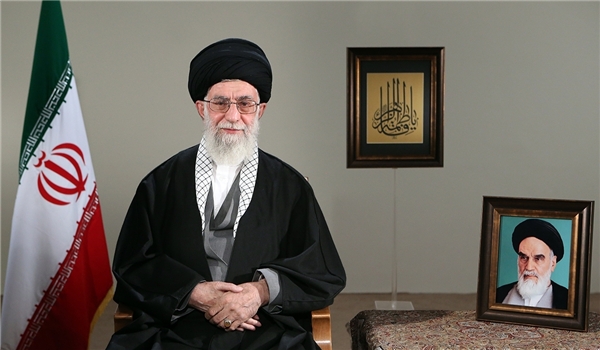Leader of Islamic Ummah and Oppressed People Sayyed Khamanei Communicates Macro-Scale Policies for Iran’s 6th Development Plan

The decree was issued by the leader in a letter to President Hassan Rouhani, the parliament and the expediency council for implementation. The macro-scale policies have been regulated based on the three pivots of the ‘resistance economy’, ‘pioneering in the scientific and technological fields’ and ‘improving and retrofitting the culture’, to help materialize the 6th development plan and present a role model taken from Islamic thoughts for progress and advancement completely independent from the global capitalist system.
The macro-scale policies have been written in 80 paragraphs and 8 topics, including the affairs related to economic, information and communication technology, social, defense and security, foreign policy, legal and judicial, cultural, scientific, technological and innovation affairs.
In early March, Supreme Leader of the Islamic Revolution Ayatollah Seyed Ali Khamenei in a meeting with economic activists, elites and state officials in Tehran explained the root cause of Iran’s turn to the Resistance Economy as well as the specifications, features and components of such an economic model.
Ayatollah Khamenei elaborated on the reasons and incentives for the adoption of the economy of resistance, and said, “Abundant material and non-material capacities of the country, treatment of chronic and lasting economic problems, confrontation against sanctions and immunizing the country’s economy against global economic crises” are the reasons why such a model should be practiced in Iran.
He further noted that the components of the resistance economy are “creating movement and dynamicity in the country’s economy and improving macroeconomic indicators”, “ability to resist against threatening factors”, “reliance on internal capacities”, adoption of a “Jihadi approach”, “people-centeredness”, “reforming consumption patterns”, “campaign against corruption” and adoption of “knowledge-based approach”.
Ayatollah Khamenei referred to the sanctions imposed by the western powers against Iran due to its peaceful nuclear program, and said the country should strengthen its economy in a way that no boycott and embargo could ever leave a negative impact on it so easily.







